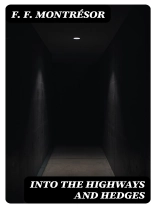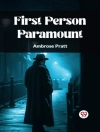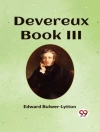F. F. Montrésor’s ‘Into the Highways and Hedges’ is a compelling novel that delves into the complexities of human relationships and societal expectations. Set against the backdrop of a quaint village in the early 20th century, the book weaves a intricate web of characters and their interconnected lives. Montrésor’s writing style is poignant and thought-provoking, drawing readers into a world filled with hidden emotions and untold secrets. The literary context of the novel showcases Montrésor’s deep understanding of human nature and his ability to capture the essence of small-town dynamics. With themes of love, betrayal, and redemption, ‘Into the Highways and Hedges’ offers a captivating narrative that will resonate with readers of all backgrounds. F. F. Montrésor, a renowned literary figure known for his insightful commentary on human behavior, brings his unique perspective to ‘Into the Highways and Hedges’. His personal experiences and observations have undoubtedly influenced the intricate character development and intricate plot twists present in the novel. Montrésor’s attention to detail and nuanced storytelling create a vivid and immersive reading experience that will leave a lasting impact on readers. I highly recommend ‘Into the Highways and Hedges’ to anyone seeking a thought-provoking and emotionally engaging literary exploration. Montrésor’s masterful storytelling and profound insights make this book a must-read for fans of character-driven narratives and compelling social commentary.
关于作者
F. F. Montrésor, also known as Frances Frederica Montrésor, was an overlooked yet significant novelist at the turn of the 20th century, contributing to the literature of that period with her distinctive narrative voice. Descending from a lineage with Huguenot heritage, Montrésor harnessed her unique background and perspective to the literary domain. Her novel ‘Into the Highways and Hedges’ (1895) exemplifies her narrative expertise, delving into the complexities of societal norms and women’s lives during the Victorian era. The novel articulates the struggles and oppressions faced by women, woven into a tale of sacrifice and self-discovery. F. F. Montrésor’s use of rich characters and her exploration of moral and social dilemmas reflect her literary style, which is characterized by an acute awareness of social disparities and a sympathy towards those constrained by their societal roles. Though not as widely recognized as her contemporaries, Montrésor’s work presents an insightful look into the intersectional challenges of class and gender, making her contributions vital to the understanding of late Victorian literature.












